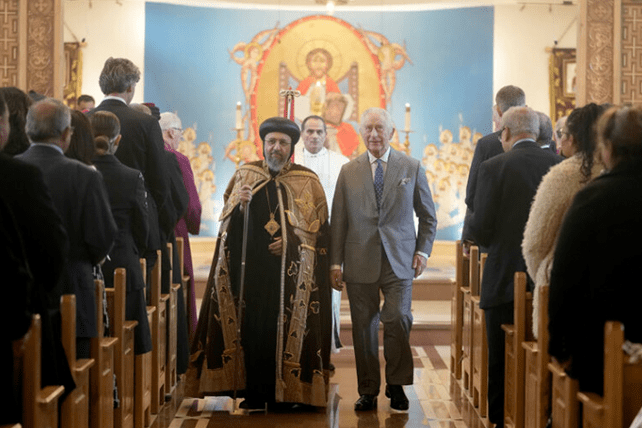At a time when the Church of England is facing this latest debate about its status, it is finding that some of its natural allies are no longer quite so friendly. Traditionally it was supported by members of the Conservative Party, known as One Nation Tories, who approved of the Church of England as a unifying body with a traditional role in society. But as the governing Conservative Party moves more to the right, fewer MPs tend to be One Nation Tories. Other Conservatives are far more critical of the Church of England and dislike commentary from the bishops on social issues.
One privilege of being an established church is that the Church of England has 26 bishops sitting in the House of Lords, where they often speak on those very issues, such as the cost of living crisis, poverty and migration, that are so sensitive for the government. One key establishment privilege is that the Archbishop of Canterbury, by virtue of his office, is allowed to bring a debate of his choice. Last Friday, the current Archbishop, Justin Welby, chose to speak on the family, linked to a commission on the issue that he initiated.
Welby took it as an opportunity to challenge the government on the ethics of its plan to restrict migrants bringing family members into Britain.
“This week, we hear that many people in this country will be prevented from living together with their spouse, children, elderly parents, as a result of a big increase in the minimum-income requirement for family visas,” he said.
“The government is rightly concerned with bringing down the legal migration figures … but there is a cost to be paid in terms of the negative impact this will have on marriage and family relationships for those who live and work and contribute to a life together.”
Critics of the intervention of bishops are not only found among Conservative politicians. Establishment has long been a target of the National Secular Society who think 26 bishops in the House of Lords is 26 too many.
Even clergy in the Church of England have voiced doubts over establishment. Earlier this year, The Times conducted a survey among Anglican clergy, and 53% of the priests surveyed said the formal links between the state and the Church of England should be reviewed, up from 41% the last time the question was asked in 2014. In 2022, 43% said no changes should be made, down from 54% in 2014.
But more concerning for the Church of England is the decline in churchgoing. The 2021 Census showed that for the first time, less than half the population of England and Wales identifies as Christian (46%), while figures compiled by Statista.com show a significant decline in the average weekly attendance for the Church of England between 2019 and 2022. In 2022, the average weekly church attendance at Church of England services was 654,000, a drop of 228,000 from 2019 (attendance for the years in between were affected by the COVID pandemic).
As always, churches and cathedrals will be hoping Advent and Christmas will bring more people through the door. But professor Abby Day, a sociologist of religion at Goldsmith’s, University of London, thinks they will have a hard time convincing people the Church of England is for them.
“The shift against the Church of England is because people do not respect its stance on morality. They don’t see their own values reflected by it,” Day said.
Day believes that as well as the Church’s approach to same-sex marriage, its past involvement in slavery is affecting how younger people perceive it.
“The Baby Boomer generation left,” said Day, “and the millennials they raised grew up without the Church of England. Those young people have a strong desire for social justice, but that does not mean they are attracted to the Church of England.”

